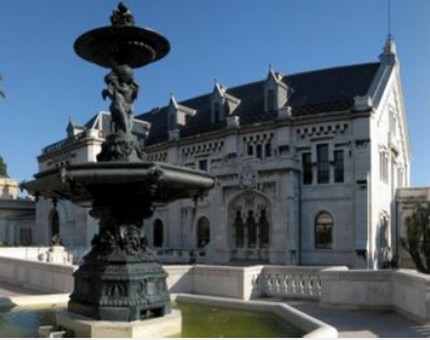On the occasion of the press conference for the New Year greetings, President Albert Marouani presented to the political authorities and the university community the 2010 report, the ongoing projects, and the objectives for the future. Here is a summary of the main chapters of this report.
UNSA has been an autonomous university since January 1, 2010, which implies expanded responsibilities and competencies, providing essential budgetary flexibility by broadening and diversifying financial resources through university foundations, partnerships with public/private entities, and the enhancement of research activities, real estate assets, and partnerships with local authorities.
The UNICE University Foundation enables the establishment of new relationships with its environment and the generation of new means for its traditional and new missions. As a nonprofit university foundation, it can receive donations and bequests under very advantageous tax conditions for all donors.
The “Promising Campus” designation is a distinction that acknowledges a project with high scientific and educational potential aimed at being a structural hub for its territory. This labeling provides access to scientific and real estate investments from the ministry and local authorities.
Four main axes are planned:
1 — Health Campus with the renovation of the Pasteur Tower for biomedical research and training;
2 — Eco-campus on the Plaine du Var with the creation of a Mediterranean Institute of Risk, Environment, and Sustainable Development (IMREDD) as part of the National Interest Operation (OIN);
3 — Student House, student housing, and ‘faculty club.’ In total, 300 additional housing units will be constructed;
4 — Consolidation of the STIC campus.
The future investments that will be possible thanks to the allocation of 22 out of the 35 billion euros from the Grand Loan dedicated to higher education and research.
UNSA has submitted proposals under the following projects:
Equipex: Provision of high-quality scientific equipment that will benefit all research fields.
Health and biotech infrastructures: Provision of large-scale competitive national research infrastructures that are highly competitive internationally.
Labex: Strengthening scientific excellence and the international positioning of French laboratories.
Promotion of research
SATT (Technology Transfer Acceleration Company), a subsidiary created by one or more institutions tasked with bridging the gap between public laboratories and the industrial world.
IRT (Technological Research Institute), a consortium of public and private laboratories dedicated to a future technological domain for which France aims for a leading global position.
Innovation platforms designed to offer shared resources (equipment, highly qualified personnel, and associated services) in open access, primarily to the members of the labeling competitiveness clusters and, in particular, to SMEs. These platforms will enable the realization of research and development projects with significant economic returns, potentially leading to industrialization and market introduction.
Digital economy to accelerate the deployment of new high-speed networks and support the development of new innovative digital uses, services, and content, with UNS wishing to refocus on tourism.


